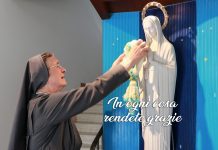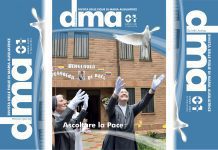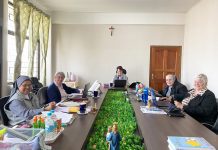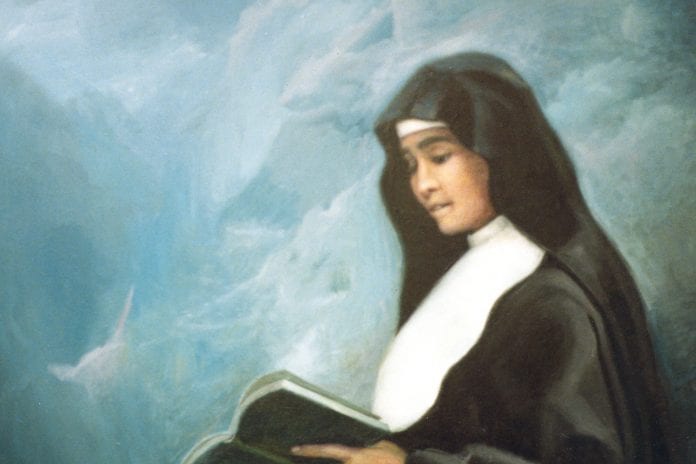Cantalpino (Spain). On 9 February 2021, the liturgical memorial is celebrated of Blessed Eusebia Palomino, Daughter of Mary Help of Christians who lived in Spain (1899-1935), beatified in Rome by John Paul II on 25 April 2004. This year marks the 100th anniversary of the call to Salesian religious life of the young Eusebia, in 1921.
Born on 15 December 1899, in Cantalpino, in the province of Salamanca (Spain) from a very poor family but one of great faith, Eusebia moved to Salamanca to financially support her family with her work. It is 24 May 1915 when she sees the procession of Mary Help of Christians go by and, when the statue is in front of her, she hears Our Lady saying to her: “You will be my daughter”. Fifteen days after this meeting, a young woman invites her to the oratory of the Daughters of Mary Help of Christians where, visiting the chapel, she sees the Help of Christians again, she kneels and hears the words: “This is where I want you”.
From that day on, Eusebia’s desire to see Our Lady again increases each Sunday by going to the oratory. Soon the Salesians Sisters recognize in that little girl, who did not have much culture, but great simplicity and honesty, something special. She was polite and fair, why not offer her a place at the school? God’s plans were gradually being realized. There she immediately takes care of cleaning the house, helping in the kitchen, and among her many occupations, she finds her happiness in serving with joy.
Given her poor condition, it is not easy for Eusebia to undertake the journey of religious life. Fr. José Binetti, Provincial of the Salesians, while visiting the FMA in Salamanca meets her and asks her if she wishes to consecrate herself to the Virgin. Upon her affirmative answer, he puts his hand on her head and pronounces the formula of consecration to Mary Help of Christians. Eusebia does not understand Latin, but the Provincial adds: “From today you are all of Mary, she will help you, she will guide you, she will give all the means so that you can fulfill your wishes. In the meantime I will ask for you.”
Life continues in the work at the school, with the only goal of doing good to others and sanctifying herself. The school is already her home and little by little her presence proves precious, as confirmed by some testimonies of the sisters who live with her in Salamanca:
- A sweet smile was always on her lips, giving the feeling that she was always in the presence of the Lord.
- She had a special gift for teaching catechism to the little ones, for explaining the doctrine with ardor, with which she communicated her fervor.
- Charitable to the poor, she deprived herself of her own food to help the needy.
- Always ready to please others, she was never heard to speak ill of anyone.
- With a strong and dominant character, she proved to be the opposite and always managed to find the jobs that required more sacrifice, with spontaneity, without the slightest ostentation.
- Unattractive in appearance, her virtue, her goodness, her great charity towards all – the fruit of her immense love for God – gave her pleasant and understanding features that made everyone love her.
- She radiated light and warmth. She was admired and loved… she had become a gift.
In the first months of 1921, Mother Enrichetta Sorbone, Vicar General of the FMA Institute, visited the House of Salamanca and Eusebia was able to speak with her to express her desire to be a religious and to share with her the difficulties due to her poverty. Mother Enrichetta tells Eusebia not to worry about anything anymore, because she would be admitted to the Congregation.
At the end of 1921, Eusebia went to Cantalpino to ask her parents for permission to enter the Institute. On 31 January 1922, at the age of 22, Eusebia received the Postulant medal, remaining in Salamanca to serve in the kitchen.
The life of Sister Eusebia is the voice of God for all: it indicates who the rich and wise are in front of God and is a constant reminder to make the ordinary of the Salesian vocation extraordinary, in simplicity and hiddenness.
The musical “Voice of God”, made in 2015 by the Valverde del Camino theater group (Huelva), directed by Mati Valero, from the Seville Province, highlights the spirituality of the Blessed.




















